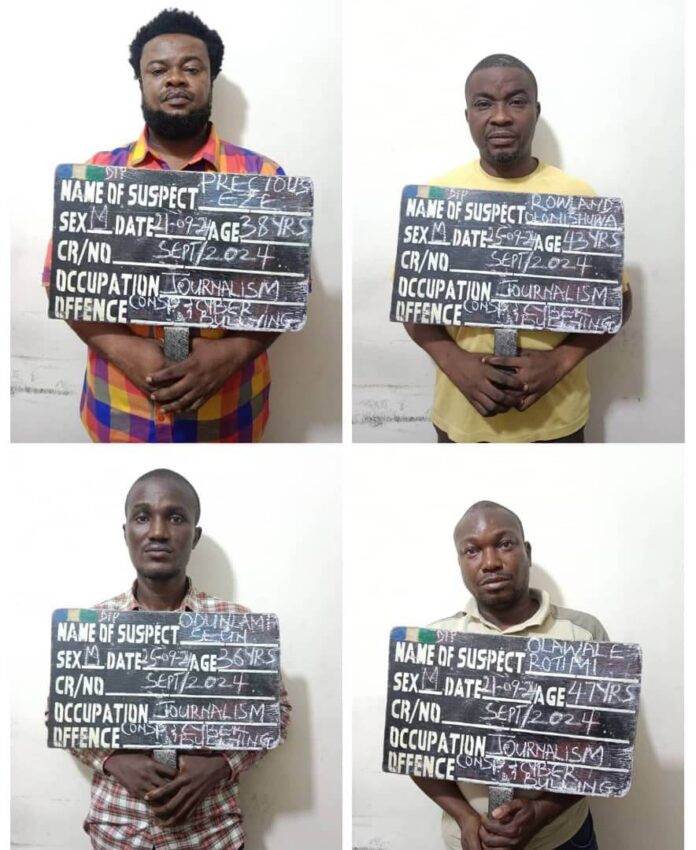Alleged Blackmailing Of GTCO, CEO: Trial Of Bloggers Continues Thursday
The trial of four bloggers: Precious Eze, Olawale Rotimi, Rowland Olonishuwa, and Seun Odunlami, charged with allegedly blackmailing Guaranty Trust Holding Company and its Group Chief Executive Officer, Segun Agbaje, will continue on Thursday following the request on Tuesday of the defence counsel, A. Adeniyi, to call more witnesses.
They are facing a 10 count amended charge for allegedly publishing false information about GTCO and Agbaje through various social media platforms.
They had pleaded not guilty to the charges and were denied bail because Eze was accused of being a serial offender.
However, Justice Faji ordered an accelerated trial of the four bloggers.
At the resumed hearing of the matter on November 13 and 14, 2024, Justice Faji dismissed their bail applications, citing the serious nature of the alleged offences, which included charges that could lead to up to 14 years in prison.
The judge also held that Eze has shown the tendencies of committing the offence again if let out as he is currently charged with a similar offence in another court and was only out on bail when he went ahead to commit the alleged offence for which he is now standing trial.
He also highlighted the potential destabilising impact such actions could have on the banking sector, particularly since some of the charges involved cross-border activities on the internet.
He also noted that the defendants’ actions challenged the authority of regulatory bodies, including the Central Bank of Nigeria, which had approved GTCO’s audited statements.
At the resumption of trial on Tuesday, the police witness, M. Yakubu, who was still under oath, was cross-examined by the defence counsel.
Adeniyi asked: “Are you familiar with international laws and practices that guide investigators and the implications of not adhering to such laws and practices?”
The witness replied: “I am aware,” adding that he had been an investigator since 2001.
On whether he knew that each column in a statement form has its importance to the investigator and the suspects and as well familiar with his right to guide and not induce or promise the suspect through the process, the witness replied that he was certainly aware.
Adeniyi further asked for the starting and ending time of each statement recording of the defendants from the 1st to the 4th and the reason for the process without the presence of their lawyers
The witness replied that the maximum time spent in recording the statement of each defendant was an hour and it was done in the absence of their legal representatives, which he said was as the defendants agreed to do.
He further probed: “How many interrogation rooms do you have at your station?”
Witness replied: “We have only one.”
Defence counsel: “How did you record the statement of the four defendants?”
Witness: “It was done one after the other and I was the one who conducted it.”
Defence counsel: “Do you have an observation room at your station? How many?”
Witness: “We only have CCTV footage of the interrogation room which can only be viewed from the office of the CP, DSP and ACP.”
The defence counsel then prayed the court to give room for more witnesses for cross examination.
Opposing the application, the prosecution counsel, Chief Ajibola Aribisala (SAN), urged the court to reject the request or mandate the defence counsel to make available the list of witnesses before they appear in court.
In delivering his ruling, Justice Faji ordered the defence counsel to update the prosecuting counsel on the list of the witnesses that will be summoned at the next hearing slated for Thursday, December 12, 2024.





